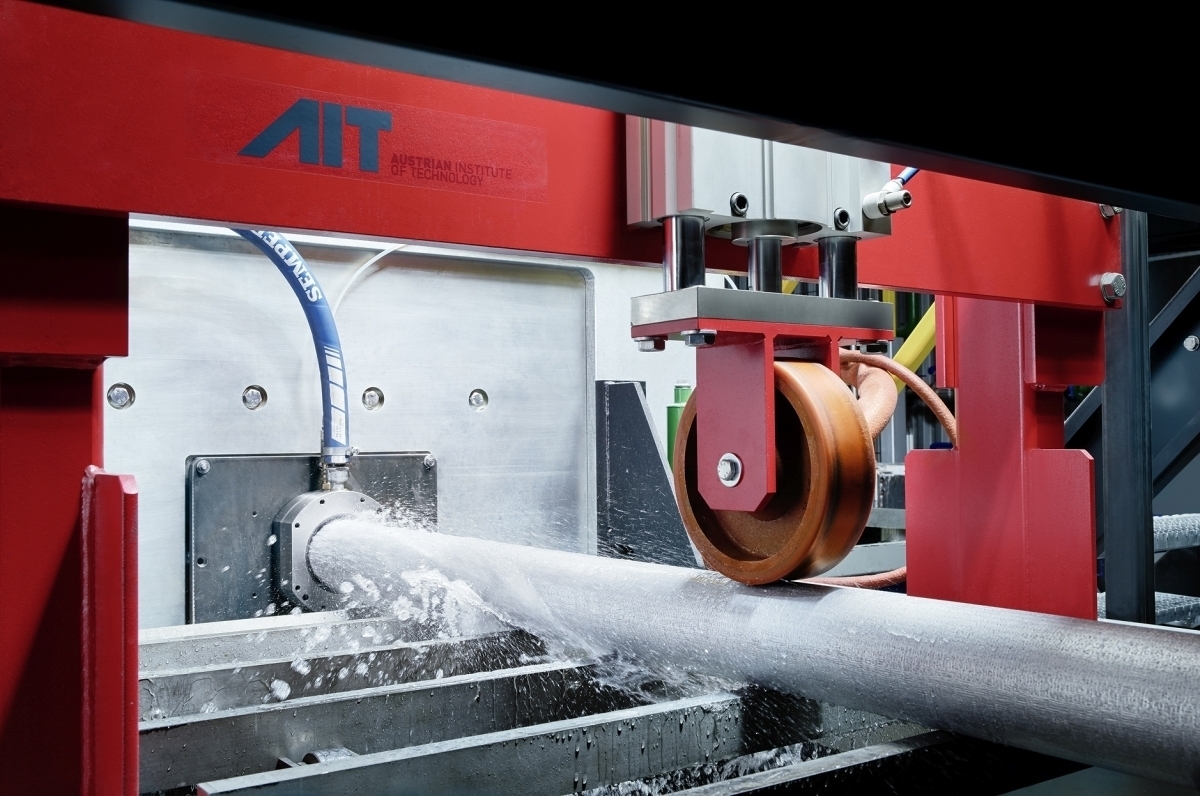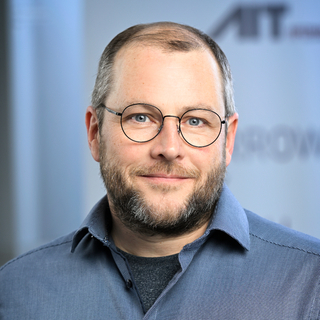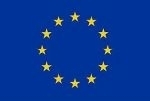RecAL – New recycling technologies for European aluminiuim
08.04.2024The AIT Austrian Institute of Technology is leading the EU project RecAL, which focuses on sustainability, the circular economy and resource efficiency in the aluminum industry.
RecAL Kick off meeting
© AIT / Florian Hainz
In a pioneering initiative recently officially launched in Vienna, the RecAL (Recycling technologies for circular ALuminium) project aims to develop innovative recycling technologies and a digital platform for a circular aluminum economy. The HORIZON EUROPE-funded project brings together 19 partner organizations from nine European countries and is coordinated by the LKR Leichtmetallkompetenzzentrum Ranshofen, a wholly owned subsidiary of the AIT Austrian Institute of Technology. The initiative aims to usher in a new era of sustainable production and reuse for aluminum by creating a digital cockpit, the RecAL Hub. This enables the circular economy of aluminum recyclates across the continent and connects suppliers, buyers and technology solution providers.
Circular economy as the future for European aluminum
Recycling aluminum from existing end-of-life (EoL) and production waste holds enormous potential and requires only 5 % of the energy needed to produce primary material. Given its crucial role in global decarbonization, the RecAL project aims to exploit the potential of this raw material in an environmentally friendly and efficient way, in line with the European Green Deal.
One of the major challenges in recycling aluminum is that the metal is alloyed with a variety of other elements that are virtually impossible to separate again. The current practice of mixing different EoL alloys inevitably leads to downcycling and a reduction in available feedstock. Europe has a rich potential for secondary aluminum, which is expected to account for 49 % of total aluminum production by 2050. However, this potential resource needs a central hub.
 Horizontal extrusion plant
Horizontal extrusion plant
© AIT-LKR / Lang
Aims of RecAL
The RecAL project takes a comprehensive approach to the sustainable use of this valuable secondary resource. It strategically addresses every step of the production and reuse cycle and solves challenges along the entire value chain:
- Higher impurity tolerance in alloy design without compromising properties
- Exploiting the benefits of digitalization and robotics in sorting and dismantling
- Creation of recyclate streams with significantly improved purities
- Adapting production paradigms to unleash the full potential of secondary resources
- Harmonization of communication between all sectors of the aluminium industry
With a strong focus on innovation, RecAL is driving forward a total of 14 major technological solutions for aluminum recycling up to technology readiness level 6 (TRL6). These are integrated into a digital, socio-technical ecosystem that acts as an aluminum hub for the circular economy. This dynamic platform promotes direct collaboration along the entire value chain and contributes significantly to industrial and technological symbiosis on a large scale by linking energy, resource and data cycles at regional and European level.
Innovative interaction between research and industry
 Project manager Gerald Prantl from the LKR Leichtmetallkompetenzzentrum Ranshofen
Project manager Gerald Prantl from the LKR Leichtmetallkompetenzzentrum Ranshofen
© AIT / Johannes Zinner
The RecAL consortium consists of 19 European partners from research and industry. The project is led by the LKR Light Metals Competence Center Ranshofen of the AIT Austrian Institute of Technology. In addition to coordinating the project, the LKR is responsible for the Cluster C work package, in which new approaches for recycling-tolerant alloys for the most important alloy categories are to be investigated and tested directly in an industrial environment together with renowned European partners.
"RecAL aims to fully exploit the immense potential of secondary aluminium resources in Europe, revolutionize recycling processes, address key challenges in alloy development and promote sustainable practices," explains project manager Gerald Prantl from the LKR Leichtmetallkompetenzzentrum Ranshofen.
Project consortium
- AIT Austrian Institute of Technology / LKR Leichtmetallkompetenzzentrum Ranshofen (Koordination)
- RTDS Association
- Aircraft End-of-Life Solutions (AELS)
- Aloumyl, Biomichania Alouminioy Anonimi Etaireia
- Benteler Automobiltechnik
- Barna Steel
- Centre for Research & Technology, Hellas – CERTH
- Deutsches Zentrum für Luft- und Raumfahrt (DLR)
- Fraunhofer Gesellschaft
- Gebauer & Griller
- CANCOM Austria
- KU Leuven
- Leitat Technological Center
- Stena Aluminium
- Swerim
- Università degli Studi di Firenze
- Università degli studi di Modena e Reggio Emilia
- Centro Tecnologico CEIT
- Altek Europe

The "RecAL" project has received funding from the European Union's Horizon Europe research and innovation program under grant agreement No. 101138747.
